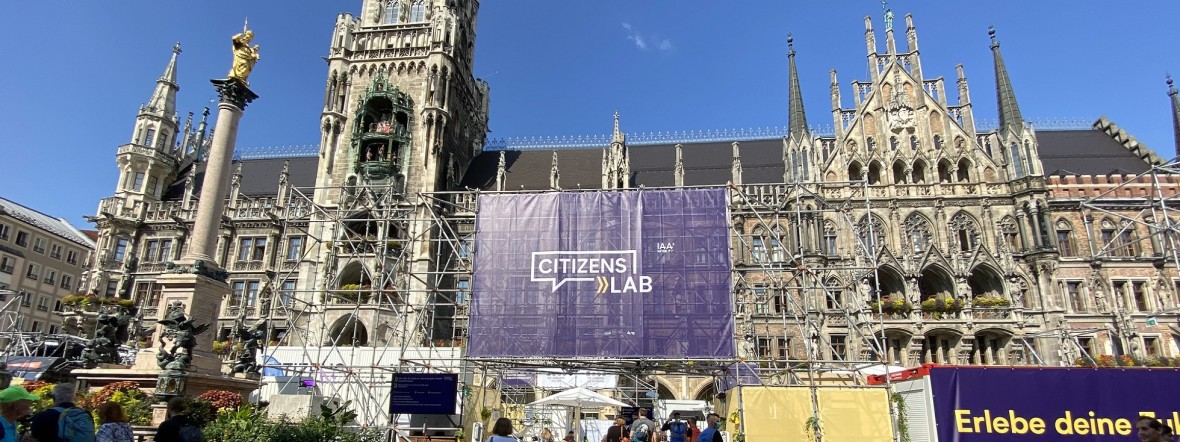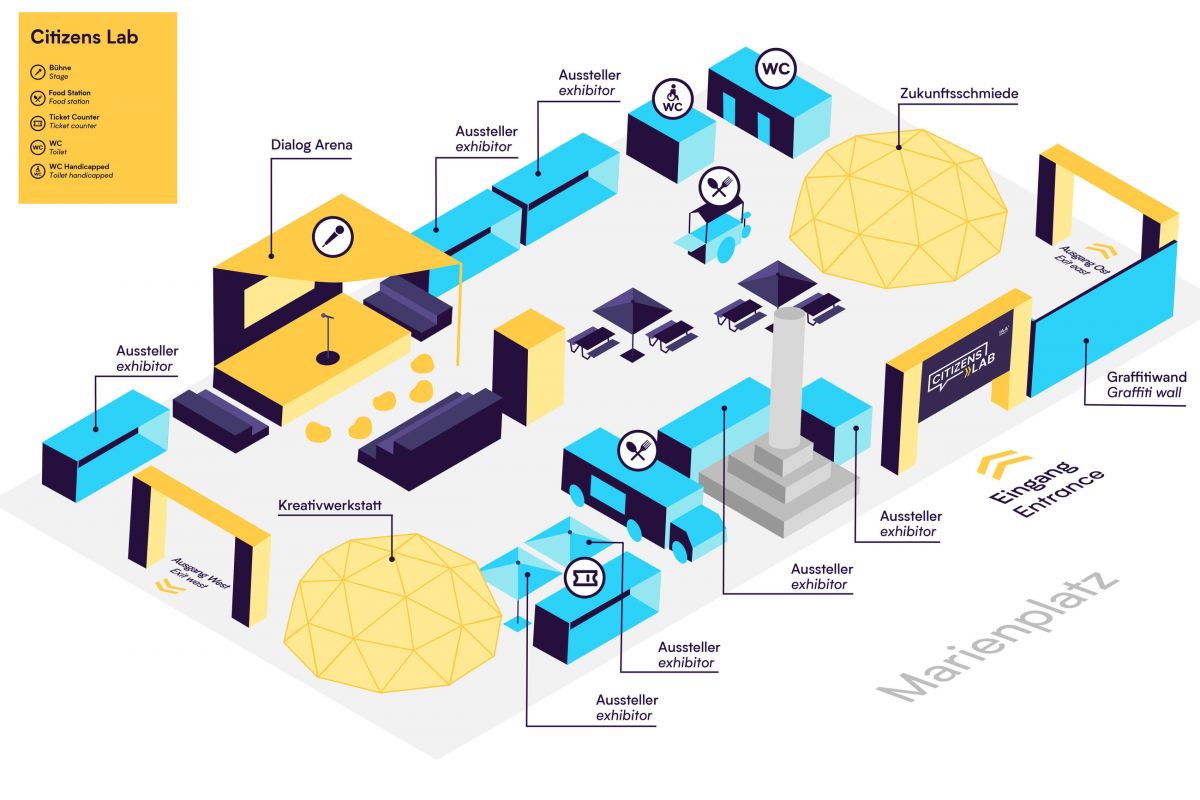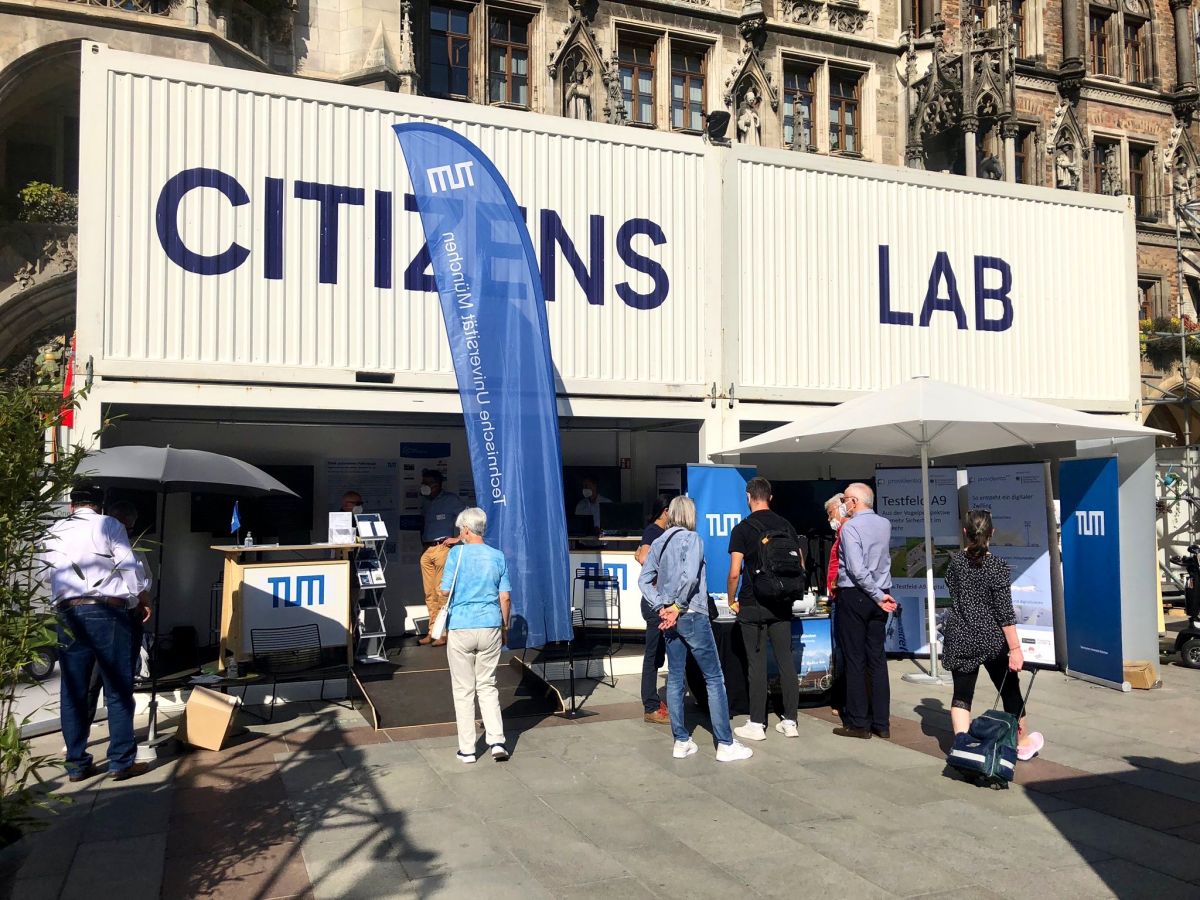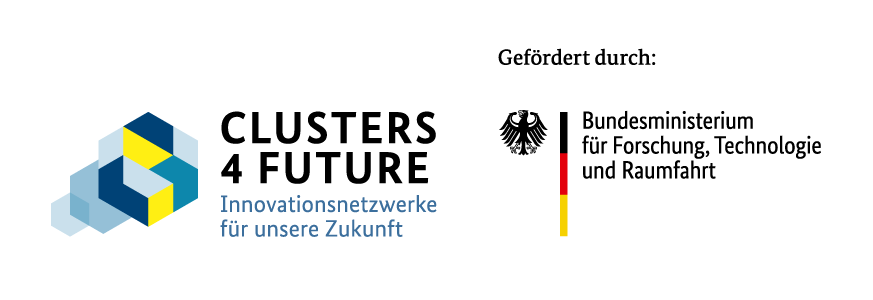From September 7 to 12, 2021, scientists from the Technical University of Munich (TUM) represented their research projects at the IAA Mobility. In the spirit of the triad between science, business and society, MCube was part of the "Citizens Lab" on Marienplatz in the heart of Munich. The aim of the "Citizens Lab" was to bring together all those who want to jointly work on and understand the mobility issues of the future and develop possible solutions.

With the move from Frankfurt to Munich, the IAA Mobility with a new concept this year. Lectures, discussions and presentations for experts took place over several days in the Riem exhibition halls. At the same time, information rooms were set up in Munich's city center as "open spaces" for interested citizens. The aim was to make new mobility concepts freely accessible to the public, test the new ideas and concepts and engage in a lively exchange.
In total, more than 400,000 visitors were counted at all venues. The "Open Spaces" in the city, including the "Citizens Lab", were very well attended. In addition to exhibitors such as EIT Urban Mobility, HÜRO Mobility and the Senior Citizens' Advisory Council of the City of Munich, MCube was also there.

In particular with the expansion of the platform TUM.mobility TUM bundles research from various chairs that deal with innovation in the field of mobility. In addition to MCube, the TUM area of the "Citizens Lab" therefore included, for example, a bicycle simulator from the Chair of Traffic Engineering visitors were able to test the new collision warning system on a ride through a virtual city. The TUM stand also provided an insight into projects such as Providentia++, which deals with the topic of autonomous driving, or the Hyperloop project the Faculty of Aeronautics, Astronautics and Geodesywhich is researching climate-neutral, ground-based means of transport for the ultra-fast connection of mobility centers.
Participants in the MCube student project "euMOVE - European Mobility Venture" also presented some of their research findings in the Dialog Arena, which was also part of the "Citizens Lab". The presentation followed the principle of Pecha Kucha, in which 20 consecutive images structure the presentation, none of which can be seen for longer than 20 seconds.
General and individual questions, ideas and concerns of the civilian population were addressed in dialogues, presentations, demonstrations and extensive information material. Right in the middle of it all: MCube as a regional network of stakeholders from science, business and society. At the stand, the interdisciplinary team of researchers provided information about the launch of the future cluster and exchanged ideas with visitors about the burning issues and challenges in the mobility sector. Central topics at the TUM stand in the "Citizens Lab" - such as sustainability, social justice and ethical issues surrounding automation - clearly showed that the path will be exciting and must be designed in a participatory manner.

The press also picked up on MCube's presence at the IAA Mobility. Members of the MCube consortium were represented twice: In an article from September 6, 2021 in the ZDF today JOURNAL Professor Gebhard Wulfhorst, Head of the Chair of Settlement Structure and Transport Planning, explains that he expects major changes in the form, drive and use of the car. Nevertheless, he emphasizes:
"I believe it is also important that we remain independent in our own mobility decisions."
Prof. Dr.-Ing. Gebhard Wulfhorst
Furthermore, Professor Markus Lienkamp, Head of the Chair of Automotive Engineering, predicts in an interview with the ZDF today JOURNAL (September 7, 2021) on the basis of his team's research findings:
"By the mid-2020s, electric vehicles will no longer be more expensive than vehicles powered by internal combustion engines."
Prof. Dr.-Ing. Markus Lienkamp
Where to put cars, bicycles and e-scooters - and how do we organize parking space fairly, efficiently and sustainably?
How can mobility data and simulations make cities more liveable - and make change visible and tangible?
The MCube Consulting study shows how the Olympic Games could have a sustainable impact on Munich in terms of sport, society and the environment - something that has already been picked up on by many media outlets.
Munich is considering an Olympic bid - our study shows what opportunities and challenges the Games could bring for the economy, environment and society.
How do we want to move tomorrow? This question was the focus of the Citizens Lab at Marienplatz for six days.
The visual utopian Jan Kamensky presented his latest vision in cooperation with the Munich S-Bahn.
Carolin Zimmer from the Chair of Settlement Structure and Transport Planning and Sebastian Preiß from the Hans Sauer Foundation explain in an interview what the project has achieved and what makes it special.
Major award for a strong team: MCube Consulting receives the Innovation Award of the City of Munich - for a solution that reduces administrative workload, improves security and shows how research enables real change.
If Munich bids for the Olympics again, it will not do so arbitrarily - but with vision, attitude and a clear plan.
MCube had its own stand at the trade fair and brought together over 100 mobility pioneers at the "Bridging City Innovation Ecosystems" event above the rooftops of Barcelona.
No results available

What is MOSAIQ?
Imagine something: There is more space for people. The streets have more trees and plants. Everyone can get around better. That's how your Schwabing-West district could be in the future. How would you like your district to be? We want to talk to you about it!
The project is called MOSAIQ. MOSAIQ is a research∙project. MOSAIQ means: Mobility and urban climate in the future city∙part. The Technical University of Munich is leading the project.
What is MOSAIQ about?
MOSAIQ wants to make the streets in the city∙part more beautiful. People should feel comfortable there. There should be more space. For meetings and plants, for example. You can help decide what is tried out in the Stadt∙teil. The ideas come from you. Some ideas will be tried out on the streets for a certain period of time.
The aim of MOSAIQ is to make urban districts good places to live.
At the same time, the climate in the city should improve. And people should be able to move around the city easily.
What is happening in the district?